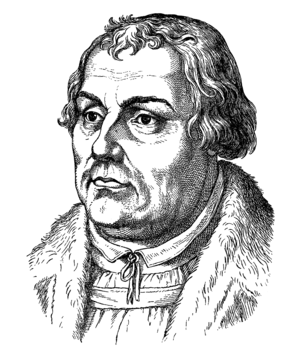 God’s promises are extraordinary. Take just two from promise-rich Romans 8. The glory about to be revealed to us will be incomparably greater than present sufferings (8:18). Nothing in all creation can ever separate us from God’s love in Christ Jesus our Lord (8:38,39).
God’s promises are extraordinary. Take just two from promise-rich Romans 8. The glory about to be revealed to us will be incomparably greater than present sufferings (8:18). Nothing in all creation can ever separate us from God’s love in Christ Jesus our Lord (8:38,39).
But suppose God’s word had failed before? How could we trust his promises to us now?
This is what makes Romans 9-11 so important to us. And why we must understand God’s ways, as much as humanly possible.
Remember the problem Paul addresses in those chapters: Israel, upon whom God lavished privilege after privilege (all pointing to the Messiah), rejected the Messiah and were, consequently, cut off from him.
What happened to all those promises? Israel didn’t get what God had promised! Had God’s word to Israel failed? “By no means!” shouts Paul. Because “It is through Isaac that [Abraham’s] descendants shall be named . . . it is not the children of the flesh who are the children of God, but the children of the promise . . . “ (9:7,8). That means that within national Israel lived true Israel. To them God made those promises. And to them God was keeping them. God chose to “ . . . have mercy on whom [he would] have mercy” (9:15). And that includes Gentiles! Good for us, huh?
“Well then, what shall we say about these things? Just this: The Gentiles have been made right with God by faith, even though they were not seeking him. But the Jews, who tried so hard to get right with God by keeping the law, never succeeded. Why not? Because they were trying to get right with God by keeping the law and being good instead of by depending on faith. They stumbled over the great rock in their path. God warned them of this in the Scriptures (Isa. 28:16) when he said, ‘I am placing a stone in Jerusalem that causes people to stumble, and a rock that makes them fall. But anyone who believes in him will not be disappointed’” (9:30-33, New Living Translation).
Gentiles, not seeking God, have been made right with God by faith. Jews, who tried hard to get right with God by keeping law, failed. Why? Because they didn’t seek the righteousness that comes by faith. So they “stumbled” over Jesus Messiah—the one to whom God’s promises pointed and the one in whom Abraham’s line through Isaac culminated. He was crucified—crucified!—in abject weakness as the sacrifice for their (and our) sins. But they thought they didn’t need a Savior. They were building their own righteousness by trying to keep God’s laws. So, they stumbled and fell in unbelief.
Yet, Paul still longs for their salvation and admires their zeal, even though it’s enthusiasm without true knowledge of how to be right with God . . .
“Brothers, my heart’s desire and prayer to God for them is that they may be saved. I can testify that they have a zeal for God, but it is not enlightened. For, being ignorant of the righteousness that comes from God, and seeking to establish their own, they have not submitted to God’s righteousness” (10:1-3).
“ . . . . submitted”—interesting word-choice. He could have written “received God’s righteousness”. But he wrote “submitted”, maybe because receiving God’s righteousness requires humility, a confession that, no matter how hard we try, we cannot keep God’s law and be declared righteous.
“For Christ is the end of the law so that there may be righteousness for everyone who believes” (10:4).
“ . . . end” is English for the Greek telos. Three meanings are possible. Christ is the goal of the law—the One to whom the law is intended to bring us (Galatians 3:23-26). Christ is the termination of the law—the One who ends the Law Covenant and ushers in the Covenant of Grace (Romans 6:4; 7:4).
But this is best: Christ is the fulfillment of the law (“Do not think that I have come to abolish the law or the prophets; I have come not to abolish but to fulfill”–Matthew 5:17). Jesus perfectly obeyed every law of the Father. Therefore, he can impute his righteousness “for everyone who believes”.
This leads Paul to contrast “the righteousness that comes from law” with that which comes by faith in Christ.
“Moses writes concerning the righteousness that comes from the law, that ‘the person who does these things will live by them.’ But the righteousness that comes from faith says, ‘Do not say in your heart, “Who will ascend into heaven?” (that is, to bring Christ down) or “Who will descend into the abyss?'” (that is, to bring Christ up from the dead). But what does it say? ‘The word is near you, on your lips and in your heart’ (that is, the word of faith that we proclaim); because if you confess with your lips that Jesus is Lord and believe in your heart that God raised him from the dead, you will be saved” (10:5-9).
Pastor (Bridgeway Church, Oklahoma City) Sam Storms comments . . .
“Paul’s point seems to be that even the Law itself proclaimed salvation by faith and not by works. Salvation is not a matter of searching high and low or of working to win God’s favor. God has already made provision for us in Christ Jesus. We do not have to scale the heights of heaven to procure it: Christ Jesus has already come down from heaven with it. We do not have to descend into the depths to bring it up: Christ Jesus has descended into death and has been raised on our behalf. In other words, salvation is not a matter of performing some magnificent physical deed. It is already here, present and available. All one need do is believe.”
Righteousness by law-keeping requires actually doing all the law’s commands. I’m not certain exactly what Paul means by citing Deuteronomy 30:11-14. But this much is clear: righteousness by faith doesn’t demand herculean effort on our part. Still citing Deuteronomy 30:11-14, Paul writes “The word is near you, on your lips and in your heart”—then identifies that word as “the word of faith that we proclaim”.
We’re saved by confessing “the word of faith””. One, that “Jesus is Lord”. Two, believing in our heart that “God raised him from the dead”.
When we proclaim “Jesus is Lord”, we’re acknowledging that he is God (the Son), the one who possesses absolute sovereign authority over everything and everyone. When we proclaim “God raised him from the dead”, we’re declaring that he conquered death and that his death was accepted by God as sufficient payment for all our sins.
“For one believes with the heart and so is justified, and one confesses with the mouth and so is saved. The scripture says, “No one who believes in him will be put to shame.” For there is no distinction between Jew and Greek; the same Lord is Lord of all and is generous to all who call on him. For, ‘Everyone who calls on the name of the Lord shall be saved’” (10:10-13).
This is the mercy God sovereignly lavishes on those he chooses. A mercy that results in salvation from his rightful wrath and in righteousness, not by our efforts at being good, but by believing God’s Word is true.
Paul bolsters his argument with two Scriptures. The first, from Isaiah 28:16, reminds us that God will do everything he said he would. We won’t be put to shame for trusting him. The second, from Joel 2:32, reminds us that we must express our faith by calling on him, and “all who call on him” reminds us that the “saved” will be people from every “tribe and language and people and nation” (Revelation 5:9).
* * *
“God wants us to be good.” That’s what most people think. But how can we know if we’re good enough? That’s why “Christ is the end of the law” is such good news. He says to everyone (including you and me) who try so hard to be good by keeping his laws . . .
“Come to me, all you that are weary and are carrying heavy burdens, and I will give you rest. Take my yoke upon you, and learn from me; for I am gentle and humble in heart, and you will find rest for your souls. For my yoke is easy, and my burden is light” (Matthew 11:28-30, NRS).
“Christ is the end of the law”–
the end of our trying to be good enough,
the end where we can rest in his righteousness,
and receive his glorious promises.


 Over a hundred years ago, the great Dutch theologian Hermann Bavinck predicted that the 20th century would “witness a gigantic conflict of spirits.” His prediction turned out to be an understatement, and this great conflict continues into the 21st century.
Over a hundred years ago, the great Dutch theologian Hermann Bavinck predicted that the 20th century would “witness a gigantic conflict of spirits.” His prediction turned out to be an understatement, and this great conflict continues into the 21st century.

Recent Comments